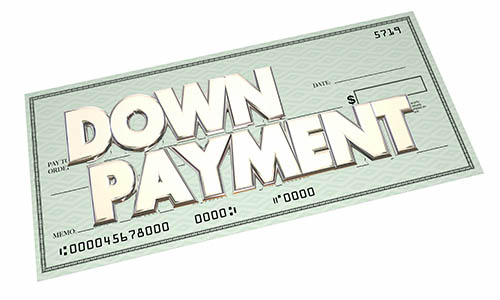What’s Ahead For Mortgage Rates This Week – September 19, 2016
 Last week’s economic news included reports on retail sales, inflation, and weekly reports on mortgage rates and new jobless claims.
Last week’s economic news included reports on retail sales, inflation, and weekly reports on mortgage rates and new jobless claims.
Retail Sales Slip as Consumer Prices Inch Up
Retail sales dipped into negative territory in August with a reading of -0.30 percent as compared to expectations of -0.10 percent and July’s reading of +0.10 percent. Retail sales excluding auto sales were better at +0.30 percent. Analysts expected a reading of +0.20 percent based on July’s reading of -0.40 percent. August’s negative reading for retail sales was the first negative report since March.
Inflation fared better than retail sales with August’s Consumer Price Index reading at 0.20 percent. Analysts expected a reading of 0.10 percent; July’s reading was flat. Core Consumer Price Index readings for August are less volatile, as the Core CPI does not include readings for food and energy costs. August’s Core CPI reading was 0.30 percent. A reading of 0.20 percent was expected; July’s reading was 0.10 percent. It appears that inflation is creeping upward, but remains well below the Fed’s target reading of 2.0 percent.
Mortgage Rates, New Jobless Claims Rise
Freddie Mac reported higher mortgage rates across the board last week. The average rate for a 30-year fixed rate mortgage rose six basis points to 3.50 percent; the average rate for a 15-year fixed rate mortgage rose one basis point to 2.76 percent and the average rate for a 5/1 adjustable rate mortgage rose one basis point to an average of 2.82 percent. Average discount points were 0.50 for 30 and 15-year fixed rate mortgages and 0.40 percent for 5/1 adjustable rate mortgages.
Low mortgage rates have helped home buyers, especially first-time and moderate income buyers, meet affordability challenges. Home prices have risen due to low numbers of available homes and high demand for homes. If mortgage rates continue to rise, fewer buyers will be able to qualify for mortgages and or afford asking prices for available homes.
Next week’s meeting of the Fed’s Federal Open Market Committee is expected to bring news of a Fed decision on raising the target federal funds rate. If the Fed raises its rate, consumer interest rates for mortgages, vehicles and other goods can be expected to increase as well.
What‘s Ahead
This week’s economic news includes the NAHB Housing Market Index, Commerce Department reports on housing starts and building permits issued and a Fed Statement at the conclusion of its Federal Open Market Committee meeting on Wednesday. Fed Chair Janet Yellen is also slated to give a press conference after the FOMC statement. The National Association of Realtors will also release a report on sales of previously owned homes.
 With approximately one million people having purchased vacation homes in the last year, this type of residence is gaining popularity for those who are interested in a home in a beach setting or a vacation hot spot. However, while a second home can seem like a great purchase and solid investment opportunity, there are different requirements that go into this type of purchase. If you’re considering a vacation home, you may want to be aware of the following financial factors.
With approximately one million people having purchased vacation homes in the last year, this type of residence is gaining popularity for those who are interested in a home in a beach setting or a vacation hot spot. However, while a second home can seem like a great purchase and solid investment opportunity, there are different requirements that go into this type of purchase. If you’re considering a vacation home, you may want to be aware of the following financial factors. If you’re just getting into the real estate market, you may have heard that 20% down is the ideal percentage in order to lower your monthly payments and get your mortgage application approved. However, while 20% is often suggested, many people struggle to come up with this amount of money. If you’re staving off home ownership, here are some reasons you may not need to hold off as you long as you thought.
If you’re just getting into the real estate market, you may have heard that 20% down is the ideal percentage in order to lower your monthly payments and get your mortgage application approved. However, while 20% is often suggested, many people struggle to come up with this amount of money. If you’re staving off home ownership, here are some reasons you may not need to hold off as you long as you thought.